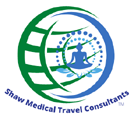Why is it important, essentially the same definition. What can you do about it?
Reverse culture shock is emotional and psychological distress suffered by some people when they return home after several years overseas. This can result in unexpected difficulty in readjusting to the culture and values of the home country, now that the previously familiar home has become unfamiliar. (source: Investopedia).
Post travel/study abroad depression is real. No one at home will understand you and no one will get you and what you’re going through, it’s like you’re fighting it alone. The thrill of adventure that comes with travel feels completely lost upon returning home, can make you feel like you’ve taken a step back. Online travel groups will help but only for a short time. Sometimes you feel that coming back home isn’t really like coming home at all, as your new adjusted home has been one of new experiences, new people and the unknown on the road. You feel a sense of being unsettled, what you previously thought was a secure landing is no longer. You sometimes feel you have no secure landing. All you can do is think about the next travel and the next journey away.
As Benjamin Button said: ‘it’s a funny thing about coming home. Looks the same, smells the same, feel the same. You realize what’s changed is you.”
Here are some of the symptoms:
- Spending a lot of time searching for opportunities abroad.
- Comparing everything to your experiences abroad.
- Criticizing the way things are done and how people live their life in your hometown calling them “close minded”.
- Talking constantly about your travels and experiences and sharing pictures.
- Not wanting to leave your home and losing interest in things you previously enjoyed and feeling distant from friends and family, Not wanting to meet other people.
- Fear leaving home because you don’t feel welcome and feel different as if you don’t fit in anymore.
- Feeling “stuck” or worried that you will never be able to travel again.
- Not wanting to commit to relationships or work or job for fear of being stuck in the same old grin.
What is a remedy and how do you treat this:
- One of the important steps to preventing this before going is to train your thought process to understand that the experience is going to be temporary (unless it’s not!), framing your expectations for your return.
- First step is to recognize and to educate yourself on the symptoms and the diagnosis/condition. Know the stages:
- The initial shock stage – feeling as if you are not able to return to your old ways handle things.

- The depression stage – feeling down, anxious, insomnia, and not able to get thoughts of your travel out of your head.

- The tantrum stage – you hate everything and everybody and all your experiences.

- The substitution stage – searching for familiar foods and experiences and locations to “trick your mind” into thinking it hasn’t really left.

- The realization stage – understanding the process and putting things into perspective.

- The acceptance stage – accepting that the experience was temporary and appreciating it for what you learned and your personal growth.

- The initial shock stage – feeling as if you are not able to return to your old ways handle things.
- Make a travel goal and plans for your next trip as something to look towards.
- Share experiences with your friends and family such as cooking, dancing or other cultural activities.
- Get involved in international communities (International citizens’ group – www.internationalcitizens.com, InterNations – www.Internations.org ).
- Volunteer in international communities eg.with refugees such as teaching English or assisting with cultural awareness an acclimation.

